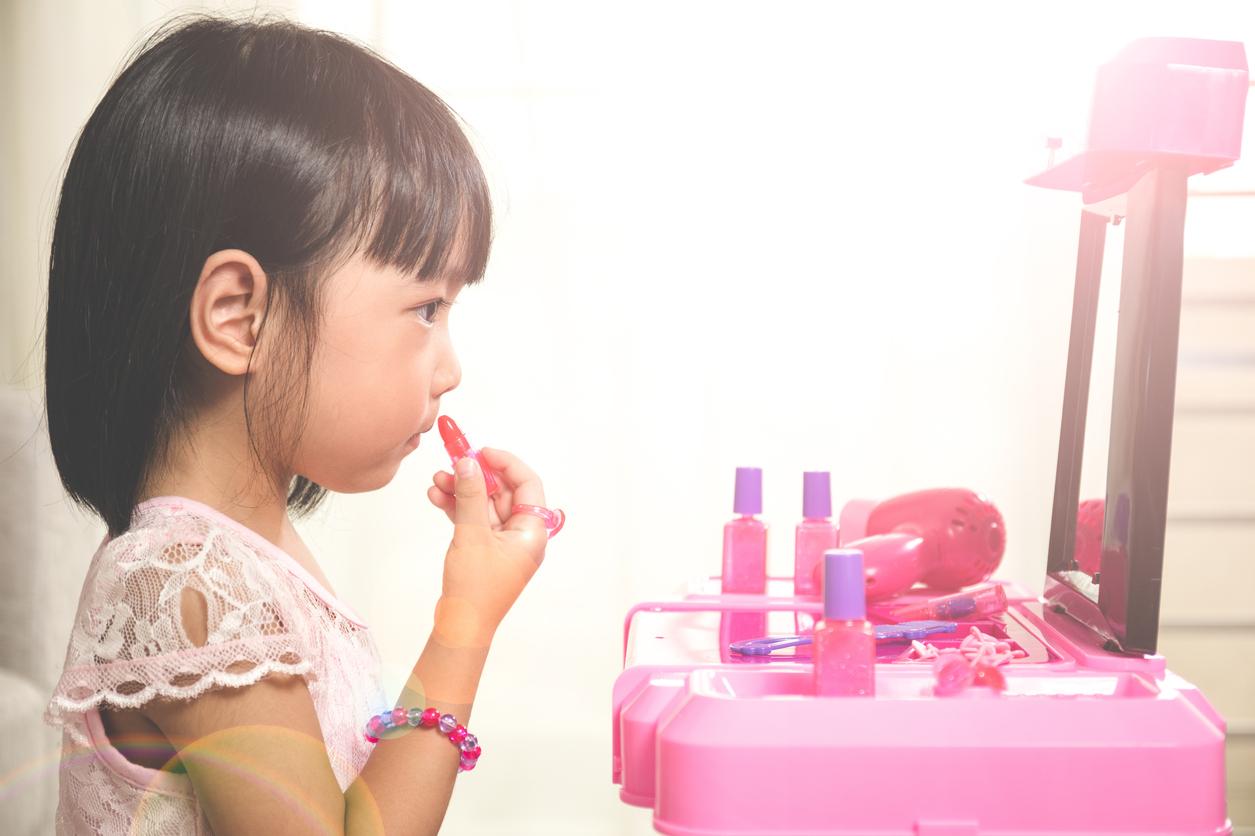More than half of British fathers think children shouldn't be allowed to wear make-up until they are 16, survey finds
How young is too young?

It’s a question that has plagued the minds of concerned parents for many years: How young is too young for children to start wearing make-up?
According to a new study by YouGov – a UK-based market research and data analytics firm – almost seven out of 10 men think that children shouldn't be allowed to use cosmetics until they are 16-years-old.
To get to the bottom of the debate, 1,629 British parents were quizzed about the age they think children should be given various freedoms, including access to make-up.
The results showed an overwhelming consensus among participants that children aged five and under should not be allowed to wear make-up, with zero per cent saying it is acceptable.
However, the exact age that youngsters should be allowed to wear lipstick or foundation proved more difficult to determine.
According to the data, more than half of British women (58 per cent) believe children shouldn’t be allowed to wear make-up until they are 14-years-old, showing the age varies wildly among mothers and fathers.
The dispute regarding children wearing cosmetics re-entered the conversation earlier this month after John Lewis and Mac Cosmetics cancelled a “back-to-school mini masterclass” on make-up for children as young as 12, after facing criticism.
One mother said she did not think the masterclass was “appropriate”, while another said she was “horrified” by the concept, as young girls already feel under pressure over their appearance.
Bex Bailey, from the Young Women's Trust charity, previously told The Independent: “At school and work young women and girls are too often judged on appearance not ability. Nearly a third say they have been treated differently at work and in interviews because of how they look.
“Unless we focus on the talents and skills young women can contribute, not on a prescriptive beauty ideal, today’s young women face a lifetime of inequality."
The YouGov survey also asked parents what age they think children should be allowed to own a mobile phone and stay out late.
By the age of 11, half (49 per cent) of Britons said they believe it’s ok for a child to have an old style “brick phone”. However, they were more reluctant to let children have a smartphone with just 22 per cent saying children should have such access by 11.
By the age of 13, nearly half (46 per cent) come to think it’s acceptable, a figure which increases to 59 per cent at age 14.
Parity of opinion on the two types of devices is reached at 16, at which point 86 per cent of Brits think it’s ok for children to have old-style mobiles and 85 per cent think it’s acceptable for them to have smartphones.
When it came to letting children start exploring the world alone, half of people (49 per cent) said it’s ok for children to take public transport without their parents by the age of 12.
Meanwhile, half (52 per cent) of the study’s participants stated they would be happy for their child to stay out after dark from the age of 15.
Join our commenting forum
Join thought-provoking conversations, follow other Independent readers and see their replies
Comments
Bookmark popover
Removed from bookmarks